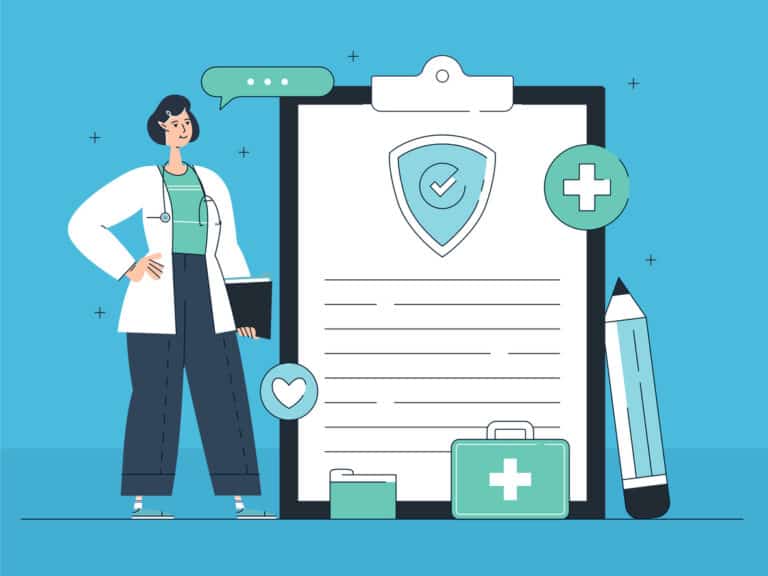Because faculty are preparing students to succeed as doctors of audiology for the next 30 to 40 years, academic audiology clinics must lead the way in creative innovations in evidence-based services and patient experiences that will dominate the future. Here, we focus on providing patients with unusual and unforgettable experiences they will receive nowhere else. Such efforts will differentiate your academic clinic from the competition and educate your students about this rewarding process so necessary for current and future success.
First Impression – Phone Me!
Seniors are the majority of adult audiology patients. Research shows that their initial experience, or first impression, is crucial to a successful relationship. For many medical appointments, these seniors are aghast when their initial appointment reminder is an impersonal robocall reminding them that some unnamed person has an appointment and instructing them to bring a bushel basket full of identifications, prescriptions and insurance verifications to the appointment. This is not a warm, welcoming initial experience. It is worth the cost and effort to surprise your patients with a live phone call to remind them of their appointment and answer their questions. Yes, most seniors have questions. These questions could be wayfaring, about which doctor they will see or other issues of importance to them. None of which are answered by a robocall. As profit-focused providers cut cost by using robocalls, this presents a great opportunity to differentiate your clinic. Students should make calls to increase their interactions with patients and gain a sense of how difficult it is for some patients to communicate by telephone.
Playing the Education Card
Seniors are overwhelmed with the vast array of hearing health pathways and device choices for hearing loss. Because universities are educational institutions, they are they natural go-to source of information to help people navigate these tortuous pathways and numerous decisions. Display these sought-after educational materials on your website, produce public educational seminars and make patient education a crucial part of your marketing, branding and patient experience. Have students compete to create new patient education opportunities and materials. Being a university, patients expect you to educate them thoroughly and objectively. Your competition does not have that advantage. Use it.
Look Your Brand
To be competitive, many universities are building new academic audiology clinics or renovating existing clinics. The current architectural trend for clinics and hospital is to model them after hotels with warm, welcoming, comfortable settings. Not a bad idea, but if you are building your brand, in part, on your educational heritage, then why not also build an educational atmosphere in your clinic? Display large photos of iconic sites on your campus. Line walls with warm wood bookcases and fill them with books about hearing and audiology by asking alumni to donate their old libraries of texts and journals. No room for bookshelves? Then try bookshelf image wallpapers and paint or trim walls and carpets in university colors. Also display your university logo, faculty degrees, graduating class pictures of Au.D. students in their caps and gowns, research posters and academic honors publicly on your walls and website. Be creative and proudly display your educational heritage in unique ways. Your fiercest competitor does not have an educational heritage advantage. Use yours!
Bad Experience – Great Opportunity
Clinics that can spot their patients’ moments of dissatisfaction and vulnerability, and then take decisive action to support those patients, will have no problem differentiating themselves from competitors. In one study, almost 25 percent of the positive encounters cited by customers were employees’ positive responses to failed services. Reducing or eliminating customer gap, the gap between what patients settle for and what they want, is the most powerful concept of our experience economy. The customer gaps I see most often in academic clinics are way-finding difficulties, parking issues, waiting and insurance issues. Whatever your customer gaps, they should be corrected immediately, and students should understand this process and why it is being done. Also, give staff the independent ability to correct mistakes quickly, including those that require spending money. When students make service mistakes, they, or their supervisor, must be able to fix the errors rapidly and independently so it pleasantly surprises and pleases the patient. Customer gap closure and quick mistake correction are fundamental concepts for students to take away from their clinical experience.
The Importance of Surprise
There are proven ways to be sure your patient will have a memorial clinical experience, prime among them is a surprise. Pleasant surprises are those that break the script and pleasantly defy people’s expectations of how an experience will unfold. A surprise cannot become regular, because then it is expected. The first time you provide valet parking for patients, it is a surprise. Providing valet parking every time becomes expected and no longer surprises. Surprises and other enjoyable experiences are best remembered if they occur at the beginning or end of the clinic visit. Challenge your students to create new original surprises, devise plans to implement them, and put them into practice.
Examples:
A Rose to Remember You By – A patient receiving a long-stem rose as they check out of the clinic on Mother’s Day and/or Valentine’s Day is an end-of-the-visit surprise experience that stimulates the patient visually and olfactory. The experience will be remembered and shared with work colleagues, friends and family. Yes, it’s okay to give a male patient a long-stemmed rose. He may give it to someone special or appreciate it himself.
Sweet Smell of Success – Walking into a clinic and smelling freshly popped popcorn, freshly baked cookies or other great smelling treats will stimulate the patient’s olfactory system and pleasantly surprise each patient at the beginning of the visit. Varying the treat will keep the element of surprise. Try tasking student pairs, or small groups, to have a new treat ready to go each month. Students should maintain treat availability and clean up afterward, preparing them for a future where such experiences will win and sustain patients.
Planning Your Patient’s Best Moment
Research has found that in recalling an experience, we ignore most of what happened and focus instead on a few particular moments. Some of those moments, described above, are first and last moments, corrected mistakes and customer gaps and moments of surprise. Peak moments are another proven way to be sure patients have an unforgettable clinic encounter. Peak moments are the best or worst moment in the patient visit experience. If the peak moment is negative, it should be countered quickly, as described above. Get bad experiences out of the way early. Never let them come at the end of the visit. Positive peak moments may be the most powerful way to provide an exceptional experience. They should not be left to chance. They should be planned, and ideally, give the patient a transformational experience due to the treatment they receive. Preparing positive peak moments requires not only planning WHAT to do with the patient, but also HOW to do it. For instance, demonstrating hearing aids’ improved communication in noise with a spouse can provide a positive life-changing experience for the patient and the spouse because it deepens their relationship. That is a much better experience than demonstrating the same effect by testing a word list in noise with a patient sitting alone in a sound room. Work with students on how to create peak moment transformational situations that change patients’ lives and that patients and students will remember long after they leave the clinic.
Creativity Requires Courage
Substantially improving the patient experience in your clinic requires creatively changing how the clinic operates and taking risks to invest in transition, to experiment and to test outcomes resulting from those changes. Those are bold moves, which will transform the clinic and the educational experience. As with all good leadership actions, these bold moves require courage. Courageous clinical leaders inspire students and employees, energize patients and position their clinics on the front line of change. Those attributes are recipes for success, excellence in patient care and superior student education. Creating and executing these bold moves are your challenge and one for which Fuel is well equipped and eager to assist you.
Because faculty are preparing students to succeed as doctors of audiology for the next 30 to 40 years, academic audiology clinics must lead the way in creative innovations in evidence-based services and patient experiences that will dominate the future. Here, we focus on providing patients with unusual and unforgettable experiences they will receive nowhere else. Such efforts will differentiate your academic clinic from the competition and educate your students about this rewarding process so necessary for current and future success.
Academic audiology clinics must lead the way in creating novel innovations to improve patient experiences well beyond the competition and in instilling students with the importance and “know-how” to continue such improvements well into the future. If you are interested in moving your clinic into being a leader in patient experience creation, contact your regional manager or account manager.
Suggested Readings
Chernev, Alexander, Strategic Marketing Management, 7th ed. Chicago: Cerebellum Press, 2012.
George, Bill, Courage: The Defining Characteristic of Great Leaders, HBS Working Knowledge – Harvard Business School, 24 April 2017.
Pine II, Joseph, B., & Gilmore, James, H., The Experience Economy. Harvard Business Review Press, 2011
Heath, Chip, & Heath Dan, The Power of Moments. Simon & Schuster, 2017
Taylor, Brian, & Nielsen, Donald, Improving University Audiology Clinic Experiences and Creating Patient Transformations. Presented at CAPCSD 2018, Austin TX. (Available on the CAPCSD website.)


